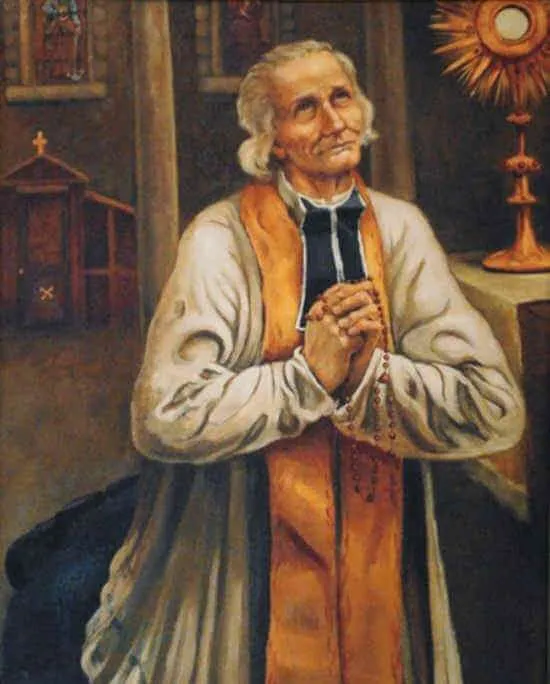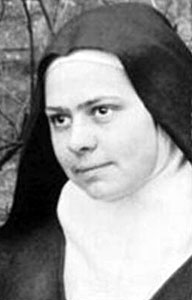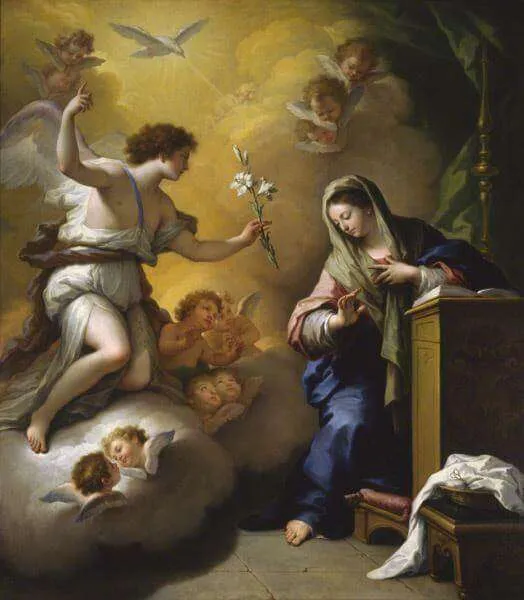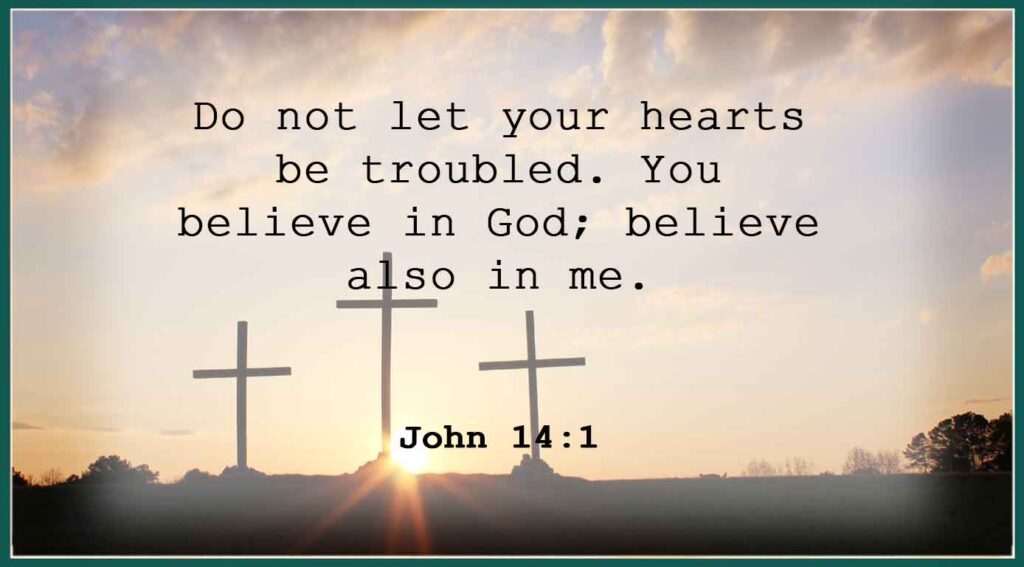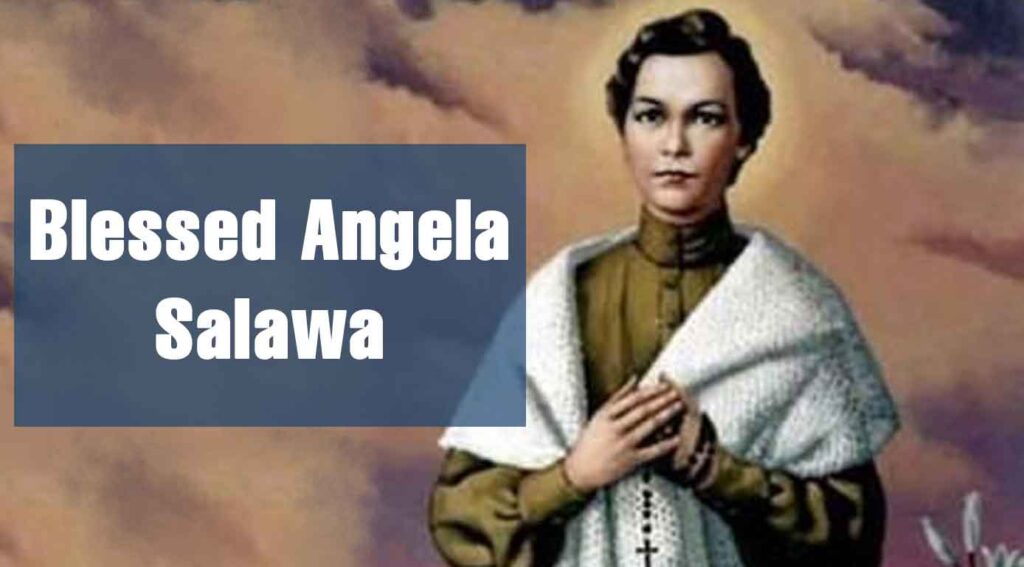1786–1859; Patron Saint of parish priests, all priests, and confessors; Canonized by Pope Pius XI in 1925
John Mary Baptiste Vianney was the fourth of six children born to devout Catholic parents in Dardilly, a rural village located near Lyon in the eastern part of France. John was born just three years before the start of the French Revolution, during which the Catholic Church came under ferocious attack. Public worship was suppressed, churches were closed or repurposed, and many priests either swore allegiance to the new state under duress, went into hiding, or were killed. During the Reign of Terror, from 1793-1794, thousands of clergy in France were executed by the guillotine. It was a chaotic time in France and an even more chaotic time to be a priest.
During this time, the Vianney family often hid priests and attended their clandestine Masses at nearby farms. The witness of the priests who risked their lives to offer the Sacraments was a powerful source of inspiration for young John, and later motivated him to become a priest. Given the chaos of the time, John spent most of his childhood helping on the family farm and tending to the flocks, rather than attending school. He received a simple education from his mother but was functionally illiterate through his teenage years. He secretly received catechetical instruction from two nuns to prepare him for his First Holy Communion, which he received at the age of thirteen in a neighbor’s house.
In 1799, Napoleon seized power in France and, in 1801, he and Pope Pius VII signed an agreement called the Concordat. This agreement did not fully restore the Catholic Church to its former rights but did recognize Catholicism as the faith of the majority of French citizens and permitted public worship, albeit worship that was regulated by the state. In 1806, the parish priest of John’s neighboring village of Écully, Father Balley, opened a school for prospective seminarians. At the age of twenty, John began his formal education there. Although he struggled, especially with Latin, his faith was manifest and his humility profound.
In 1809, John’s education was interrupted when he was drafted into Napoleon’s army to help fight the Spanish during the War of the Fifth Coalition. Prior to this, seminary students were exempt from the draft, but Napoleon, facing heavy losses, abolished the exemption. After joining his regiment, John fell ill, was hospitalized, and was left behind. He was then appointed to another regiment and this time, was so immersed in prayer at a nearby church that he missed their departure. He was sent after the troops but couldn’t find them and was instead misdirected to the village of Noes where a number of deserters were hiding. He was convinced to stay with them, change his name, hide, and teach in the school. He did this for more than a year. Eventually, he was granted amnesty and was able to return to Écully to continue his education under Father Balley.
Though John continued to struggle with his studies, Father Balley supported him, seeing in John a true vocation, a deep love for the Blessed Mother, and a profound prayer life. After John completed his studies in Écully, Father Balley convinced the Vicar General of the diocese to permit John into the diocesan seminary. John struggled but persevered. When he was up for ordination, the diocesan authorities questioned his suitability. When the bishop asked about John’s piety, he was told that John prayed the rosary like an angel. That was all the bishop needed to know. John was ordained a priest on August 12, 1815, and was sent to serve as an assistant priest in Écully, under the supervision of Father Balley, where he served for two years until Father Balley’s death.
In 1817, Father Vianney was sent to be a chaplain at the church of Saint Sixtus, in Ars, a farming community of just over 200 people. He would remain there for the next forty-one years. As Father Vianney walked to Ars, one story relates that he came upon a young boy tending sheep. He asked the boy how far away Ars was and the boy pointed him in the right direction, accompanying him on the way. When he saw the steeple in the distance, Father Vianney knelt in prayer for a long time, rose, and continued on. When he and the boy arrived, Father Vianney said to the boy, “You have shown me the way to Ars, I will show you the way to Heaven!”
Ars was known as a community that enjoyed its dancing, drunkenness, and swearing. Although the church was in disrepair, morals were lacking, and church attendance was scarce, Father Vianney went straight to work. The townspeople did not know they were receiving a chaplain, so no one attended Father’s first Masses. But as word spread, people became curious. When some stopped by the church, they saw Father Vianney kneeling in prayer before the Blessed Sacrament. Then others saw the same. And others. Eventually, people started to attend Mass. They were touched by Father Vianney’s simple homilies that presented the basic Gospel message. Sin must be avoided; those who remain in sin will go to hell. Those who turn to God will be saved and welcomed into Heaven. He often conveyed these messages by preaching on the love of God, prayer, the sacraments (especially Confession and the Eucharist), and the duty to live a life of charity and virtue.
Within the first three years of Father Vianney’s priestly ministry, Ars was being transformed. Father Vianney not only spent hours in prayer every day, endured severe penances and fasting (mainly eating boiled potatoes), and restored the church building, but he also made many home visits to his parishioners and even to the surrounding villages. This impressed many and drew them to the church. In 1823, things were going so well that the bishop raised Saint Sixtus Church to the level of a parish, appointing Father Vianney as pastor. In 1827, Father Vianney said from the pulpit, “Ars, my brothers and sisters, is no longer Ars!” Ars had been converted, people were flocking to confession and Mass, praying, overcoming sin, and turning to the love of God. But Ars was not the only place being affected; Father Vianney’s reputation had traveled far and wide. As a result, thousands of people were traveling to Ars every year to attend his Masses and confess their sins. On many days, Father Vianney spent up to sixteen hours in the confessional. By the 1850s, tens of thousands, or according to some estimates, hundreds of thousands of people were coming to Ars. A new and larger church had to be built, and a new railroad was even constructed to help people get to this small village.
Father Vianney’s method of being a priest was simple. He allowed God to consume him, live in him, and minister to the people through him. It was God who did the absolving, preaching, and loving. Father Vianney was just the human instrument. It is said that the devil appeared to Father Vianney many times, harassing him and trying to intimidate him. One time the devil spoke the truth when he said, “If there were only three like you in France, I would not be able to set foot there.”
As we honor this holy priest of God, reflect upon the importance of the priesthood. Saint John Vianney once said, “If I were to meet a priest and an angel, I would greet the priest first and then the angel…. If there were no priest, the Passion and death of Jesus would serve no purpose. What use is a treasure chest full of gold if there is no one who can unlock it? The priest has the key to the treasures of Heaven.” Though few priests live up to the dignity and responsibility they are given, every priest carries within him the sacred power of dispensing the mercy of God, absolving sins, and making the Passion of Christ present in the Eucharist. Call to mind your own priest today and pray for him, that he will become a holy and humble instrument of Christ.
Source: https://mycatholic.life/saints/saints-of-the-liturgical-year/august-4—saint-jean-vianney-the-cur-of-ars-priest/


